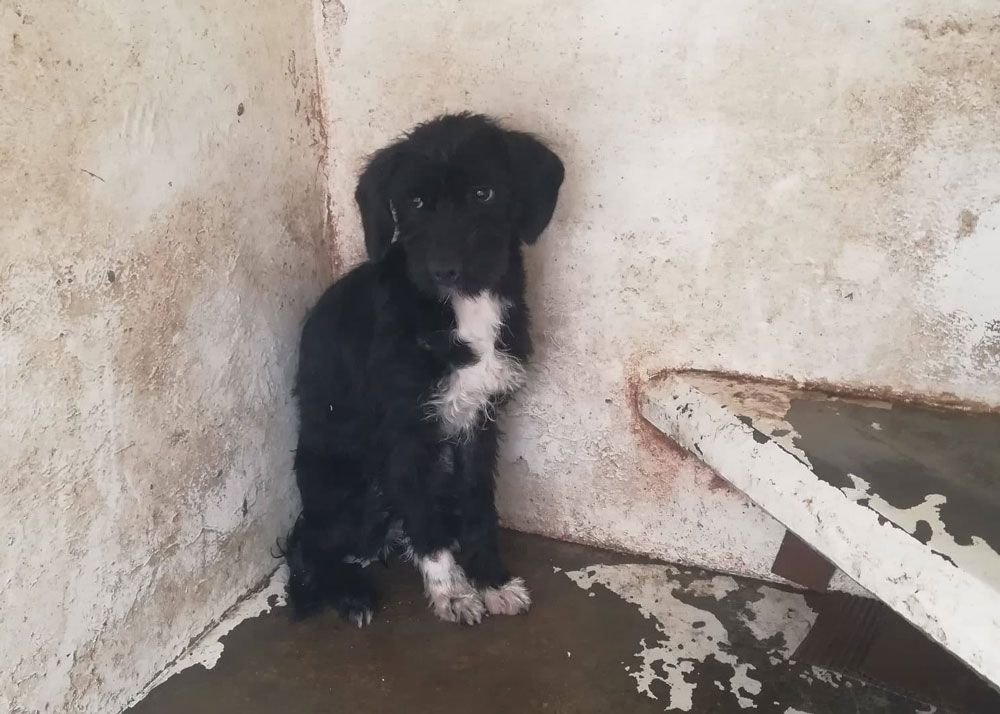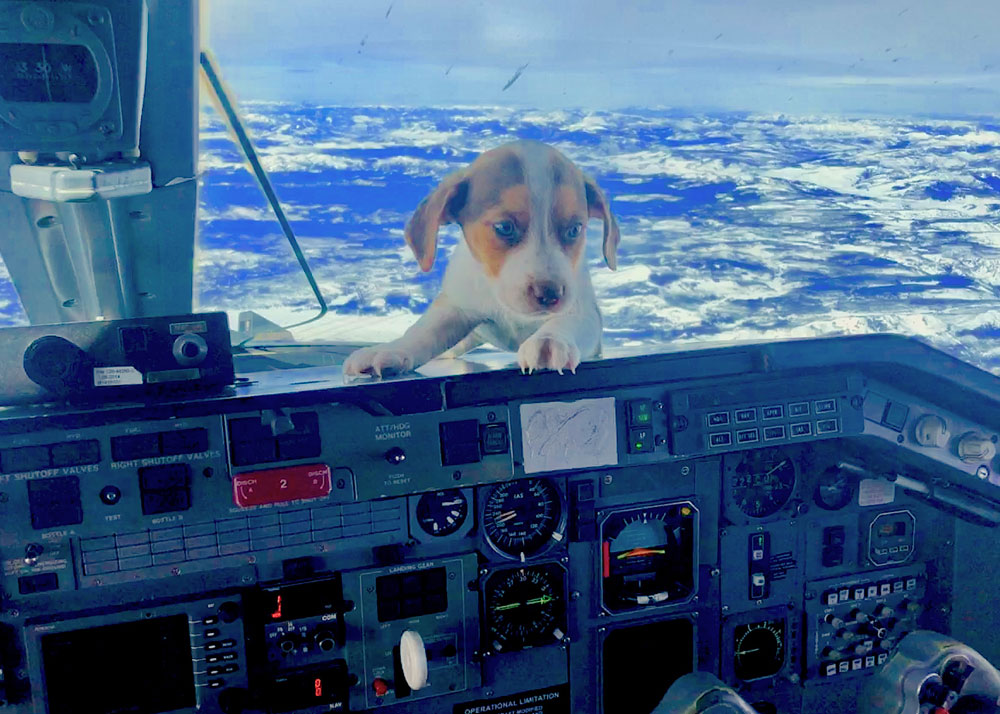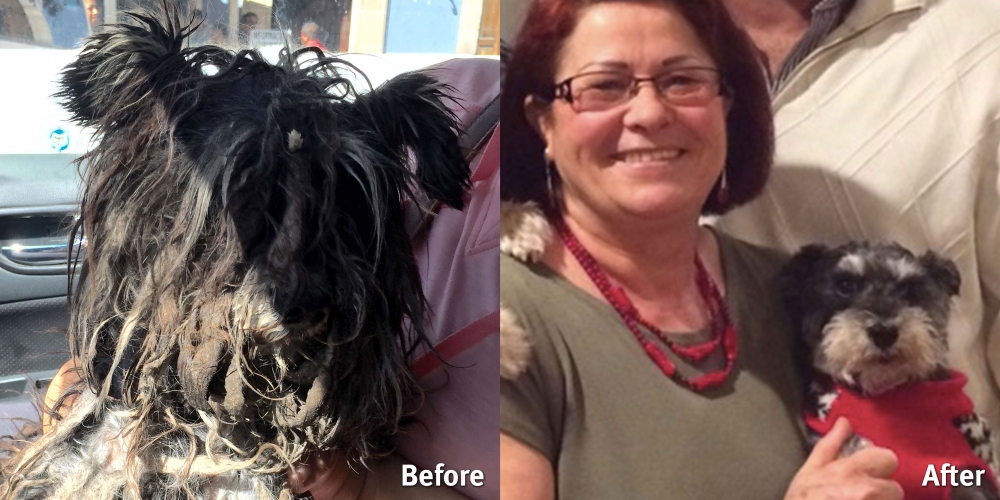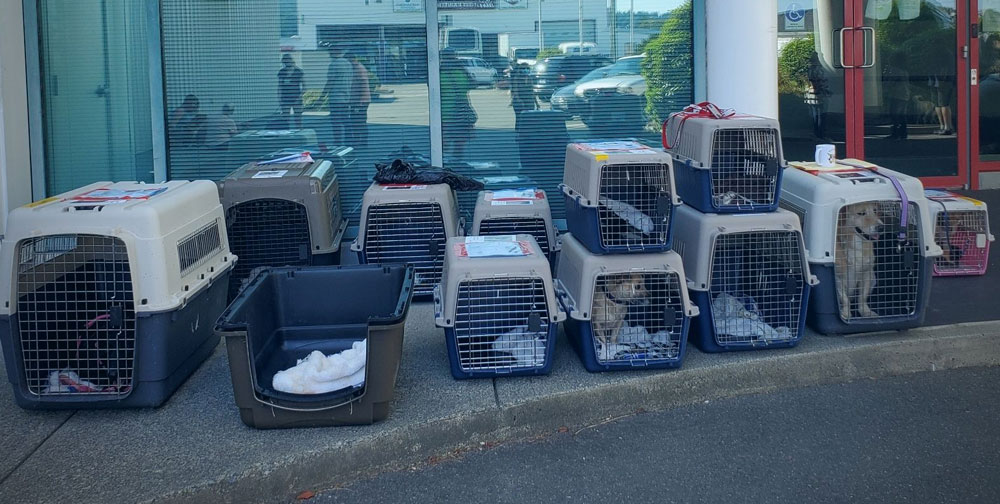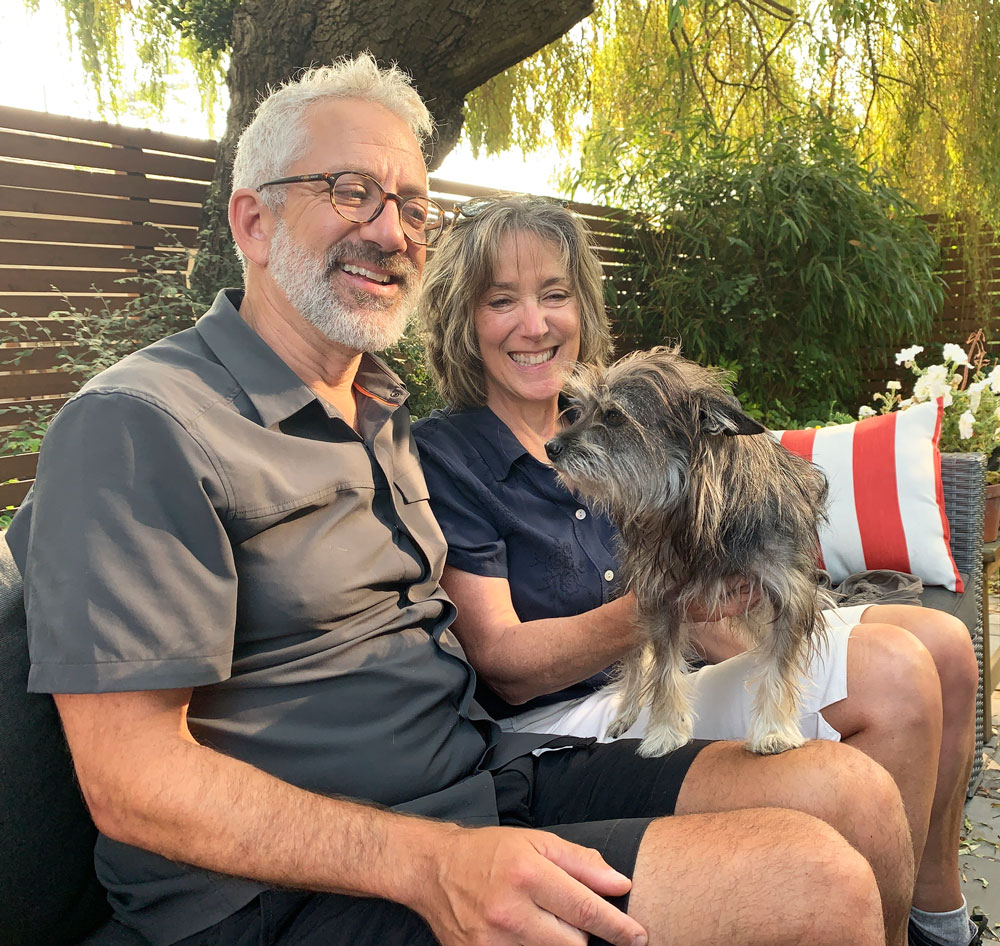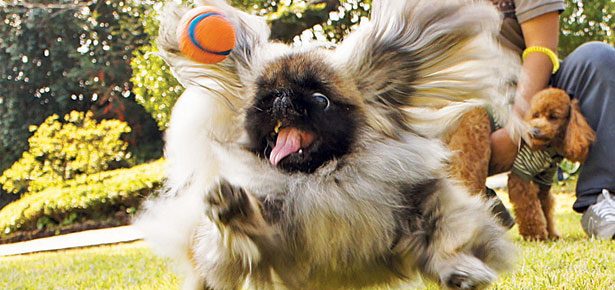

Fly Us Home
Mexican rescue dogs flown to their new homes in Canada
It was emotional overload at Victoria airport this past July when Wings of Rescue a non-profit organization, unloaded their precious cargo: 28 canines from Mex-Can Pet Partners rescue shelter in Mexico to their new homes in B.C.
Since the COVID crisis the demand for dog adoptions has skyrocketed. Sadly, supply south of the border has also increased: desperate owners are surrendering their dogs to shelters or abandoning their pets. But some people, even dog lovers, say there are dogs in Canada that need homes, so why take in more from other countries like Mexico? And why now?
Lorie Chortyk, spokesperson for the B.C. SPCA, told the CBC that they are struggling to keep up with the demand for pet adoptions. They have seen 200 applications for a single puppy.
About 30 more dogs are set to fly here this fall. The dogs’ journey from Mex-Can Pet Partners rescue shelter in Guanajuato, Mexico to their “forever homes” in B.C. is made possible by donations, mainly from British Columbians.
Everyone has had to make adjustments in their lives due to the pandemic. But for non-profit agencies trying to rescue dogs from countries with high kill rates for strays, like Mexico, it’s especially challenging. Victoria-based Mex-Can Pet Partners has homes waiting for many new dogs in B.C.; the problem is getting them here. Fortunately, two pilots with Wings of Rescue heard about Marlene Davis, Mex-Can Pet Partners founder.
Mex-Can Pet Partners with Wings of Rescue
“Once we hit 3,000 meters [above sea level] all the dogs fall asleep, like someone waves a magic wand,” says Ric Browde, President and CEO with Wings of Rescue. “When we start to land it’s like having a plane full of three-year-olds asking ‘Are we there yet? Then they all wake up at the same time."
“Everyone was so excited when the plane landed but we had a protocol in place,” says Davis. “The dogs are properly harnessed and leashed and need to recover for a few minutes. Some are very scared and I had to bring one little fella home with me for a few nights.” Davis says dogs react differently—she pretty much knows in advance how well they can handle the crate and the 8-hour flight. “Some are more stressed than others, but they are all super-happy now,” she says.
All dogs that arrive from Mex-Can are fully vetted and health certified. And before they are adopted, all the animals are spayed or neutered and tested for diseases common to Mexico such as heart worm, ehrlichia and leishmaniasis. They are already up to date on their vaccinations. And they are all either adopted or fostered before leaving the country.
“Marlene Davis is one of very few rescues we work with, and we have a waiting list,” says Browde. “So many rescuers cut protocol and safety measures but Marlene follows every regulation to the letter. We sailed through customs at Victoria airport because she did it right.” This year alone, Wings of Rescue has transported a whopping 4,759 “passengers”—mainly dogs—from disaster areas and overcrowded shelters a distance of 137,156 miles on 60 flights. And that includes being grounded for 10 weeks off for COVID.
Browde relies on about six volunteer pilots, and the organization also charters cargo planes. “It’s expensive but our passenger satisfaction rate is better than any other airline. And our passengers are cuter, friendlier, and often better behaved than those flown by other airlines,” he says, laughing.
The Adoption Process
Since 2001, Davis has found homes, mainly in B.C., for over one thousand dogs, including Julie, a Chihuahua-Yorkie mix adopted by Val Lawton and Robb Johnstone.
“After our dog died I contacted every rescue, from Victoria to Vancouver to B.C. interior, and the local pounds,” says Johnstone. “We filled out so many applications without success: some rescues didn’t return our call and online applications disappeared. We were frustrated and disappointed.” The couple found a dog at a rescue in Iran—the 7-page application included questions such as ‘what is your philosophy on discipline, would you leave your dog alone for more than an hour, what food and leash do you believe in? Johnstone thought he said all the right things, but the ‘job recruiter’ told him they found a “candidate who is a better fit”.
Johnstone and Lawton were about to give up when an acquaintance told them she adopted two scruffy dogs from Mexico and raved about her experience. “I soon learned that some rescues are like dating organizations and for profit—you have to be diligent, do research and persevere.” Not so with Mex-Can Pet Partners.
As soon as Johnstone and Lawton got into the Mex-Can system, things moved fast. “We saw a photo of Julie on the website and knew she was the one,” says Johnstone. “We contacted Marlene and within two days she was in our living room having coffee and a chat. Marlene figured we were responsible and didn’t need to inspect our house. She set the wheels in motion and Julie was scheduled for a flight from Mexico two weeks later. She came with a crate, food and more. It was love at first sight.
“Marlene couldn’t guarantee that Julie was completely housetrained. We had a few accidents but like magic she trained herself in a few days,” says Lawton. “ Street dogs are smart and she can read our mood, she knows when we need a cuddle. Julie is a wonderful addition to our family.”
Key to the adoption process is matching people with the right dog. “My goal is to make everyone happy and having no dogs returned,” says Davis. “It’s best to get it right the first time because we want to minimize changes in a dog’s life.”
With $15,000 donated to pay for fuel, Wings of Rescue can make another flight to Victoria with 30 dogs, big and small, who were abandoned on Guanajuato’s streets before Mex-Can Pet Partners took care of them. They were the lucky ones: Guanajuato city kills about 50 stray dogs every week.
Please help fly these high-risk pets to communities that can provide new, loving forever homes. A GoFundMe page has been set up for donations:
https://www.gofundme.com/f/jam9bs-help-fly-us-home
“Some people think it’s mean to have dogs travel, but it’s far better than spending one day on the street in Mexico,” says Davis.
“It’s incredible to know those dogs may not be alive today if not for this mission,” says Lawton.
Join the newsletter and never miss out on dog content again!
"*" indicates required fields
By clicking the arrow, you agree to our web Terms of Use and Privacy & Cookie Policy. Easy unsubscribe links are provided in every email.
